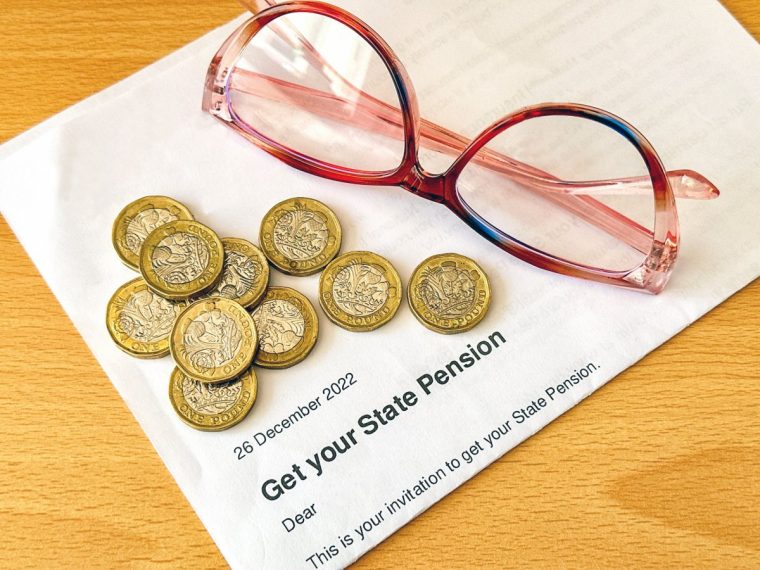From pensions and savings income to free prescriptions, cheap train tickets and cinema screenings – here’s how to stay on top of your finances when you retire
We spend most of our lives working so when it comes to retirement we can have the freedom and flexibility to choose what happens each day.
It’s a time of big financial changes, but with careful planning and budgeting, life as a pensioner can be rewarding and enjoyable, not a time of increased financial pressure or worry.
The pensions industry says a single person needs £13,400 a year for a minimum lifestyle, £31,700 for it to be moderate and for a comfortable life it increases to £43,900, according to Pensions UK’s Retirement Living Standards.
But these figures are not set in stone and the exact amount you have to live on when you retire will depend on many things, including how much you’ve saved up, when you stop working, and the type of life you are planning when you retire.
You can start taking a private pension from age 55 (57 from April 2028) and the state pension from 66. You will also need to think about how many years you’ll need your pension for.
“Many people underestimate how long their retirement might last or how much income they’ll need for a good standard of living,” said Sarah Pennells, consumer finance specialist at Royal London.
A 65-year-old man today can expect to live to nearly 85, while a woman the same age is likely to live to around 87 and a half, according to the Office for National Statistics (ONS).
Making a budget is crucial to understanding how much money you will have and to giving you the financial independence and confidence to know how long it will last.
Here we take a look at everything you need to think about when creating your retirement budget.
What is your retirement income?
The first step is to look at how much money you have. While you may have stopped working, so won’t be receiving a regular salary, other outgoings are likely to have gone down.
You are unlikely to be paying for commuting costs, for example, a work uniform or lunch, and you may have cleared your mortgage and have grown-up children who no longer require financial assistance.
For most people the main source of income when they stop working is their pension. This includes the state pension, and any private pensions they’ve contributed to.
The state pension
The full state pension for 2025/2026 is £230.25 a week or £11,973 per year and to get this most people need 35 years of National Insurance contributions, although you may be able to top these up if you are short. You can check what you’re set to receive on the gov.uk website.
Workplace pensions
You may also have one or more workplace pensions or a private pension if you’ve set one up. This could either be a defined benefit pension, based on how much you earned when you were working and how long you had signed up to the pension scheme, or the more common defined contribution scheme, where you and your employer pay into your pension pot. Your annual pension statement will show you how much money you’re set to have when you stop working.
How to boost your retirement income
Track down lost pensions
It’s well worth checking to see if you have any lost pensions too. These are pots where a pension provider can’t contact the account holder, usually because they have moved house or changed their contact details. It’s estimated there is £31.1bn in unclaimed pension pots in the UK and the Government has a free pension tracing service you can use to locate old pots.
Savings and investments
If you have savings accounts or investments, you may choose to use these as an income in retirement or to top-up your pension. You may also have assets like additional properties or you could own a business, which you could either take an income from or sell off and use the money to fund your retirement.
How will you take your pension?
It’s up to you how you take your pension, you could even leave it completely until a later date, letting it grow and hopefully create more income for you when you do need to access it.
You’re allowed to take 25 per cent of your pot tax-free but after this it will count as a taxable income.
Buying an annuity is another option, which guarantees you an income for the rest of your life and acts a bit like a salary with a monthly payment.
A more common option is pension drawdown, where you take 25 per cent of your pension pot tax-free, and the rest of the money you can take out when you need it or choose to take it as a regular income.
You don’t need to choose just one option either, many people mix and match, and it’s well worth seeking advice to find out the best solution for you and your retirement plans.
 Planning your retirement budget can be difficult (Photo: Ceri Breeze/Getty)
Planning your retirement budget can be difficult (Photo: Ceri Breeze/Getty)
What will you be spending money on?
“The good news is that some expenses may reduce or disappear in retirement,” said Pennells, as “you no longer need to pay for commuting, work clothing, or lunches out with work colleagues, which will free up some money and if your mortgage is paid off, that’s another major outgoing gone too”.
However, as you’re not working, you may be spending more in other areas, such as holidays, visiting friends, hobbies or health costs. Some of the main outgoings to consider include the following.
Housing costs
If you own your own home and you’ve paid off your mortgage, this is a big sum of money for which you’ll no longer have to budget. However, it’s a good idea to have a savings account for unexpected housing costs, such as a broken boiler or a leaking roof. Choose an account paying interest but one where you can access your money without penalty if you need to.
Household bills
Your bills should be similar in retirement to when you were working, unless there have been any big changes, such as downsizing your property. Some essential ones – such as energy costs – may increase. If you’re now home more in the daytime, you’re probably going to be using more gas and electricity.
Debts
Many pensioners have debts to pay off, from mortgages to credit cards, and some use their tax-free lump sum to clear these.
Travel
You may not be commuting to work, so your travel costs are likely to be lower, but you’ll need to budget for holidays, weekends away, or travel to visit friends and family members.
Health
As you get older, the risk of falling ill increases and, while we have a free NHS (and prescriptions for those aged 60 and older), if you choose to pay privately for health care these costs are likely to be higher than the amount you paid when you were younger and still in work.
Insurance
The amount you pay for insurance, from travel to health, increases with age because insurers put you at a higher risk of making a claim. However, specialist policies exist if you’re being offered extortionate prices or denied cover because of age or a health condition. The British Insurance Brokers Association has a free directory of specialist brokers who can help you find a suitable policy.
 Pension pots can improve if people take advantage of all the options (Photo: PM Images/Getty)
Pension pots can improve if people take advantage of all the options (Photo: PM Images/Getty)
Are you claiming what you’re entitled to?
There are a range of benefits available for pensioners, to help with the cost of paying everyday bills when you’re no longer working.
Helen Morrissey, head of retirement analysis for Hargreaves Lansdown, said: “It’s really important to make sure you are claiming everything you are entitled to. An example is pension credit which tops up the income of the poorest pensioners as well as acting as a gateway to further support. However, it remains much under-claimed which means people are missing out.”
Up to 880,000 pensioners could be missing out on this benefit, according to government figures – and it’s worth up to £3,900 per year. Once you start receiving it, you are also then eligible for a range of other benefits including the winter fuel payment, a free TV licence, the cold weather payment, free NHS dental care, and help with housing costs.
Some of the main benefits you could be eligible for are listed here, although to check exactly what you may be entitled to you can use a free online tool, such as the one from turn2us (https://benefits-calculator.turn2us.org.uk).
Pension credit
Pension credit is for those with a low income and it tops up your weekly income to £227.10 if you’re single or £346.60 if you have a partner. You may still be eligible if your income is higher than these figures, such as if you have a disability or care for someone.
Cold weather payment
If you’re receiving pension credit you should get the cold weather payment. A payment of £25 is made for every seven-day period when the average temperature in your area is recorded as, or forecast to be, 0°C or below.
Council tax reduction
You may be eligible for a reduction in your council tax if you live alone or have a low income. In some situations, such as if you’re receiving the guarantee credit part of pension credit you may not have to pay it all. Contact your local council to find out what the eligibility criteria is in your area.
Carer’s allowance
If you care for someone else for at least 35 hours a week and they receive benefits such as the daily living component of the personal independence payment (PIP) you may be able to claim £83.30 per week through the Carer’s Allowance.
Attendance allowance
If someone else looks after you because you have a disability or a severe health condition, you may be eligible for the attendance allowance. It’s paid at two difference rates of £73.90 or £110.40 per week if you have reached state pension age and you have a physical or mental disability or a health condition.
TV licence concessions
You can get a free TV licence (worth £174.50) if you’re 75 or over and you or your partner receive pension credit.
Take advantage or pensioner perks
There’s a huge range of discounts and deals available to pensioners, to lower your costs when you’re no longer working, including the following.
A third off train tickets
A senior rail card is £35 for a year or £80 for three years and it entitles you to a third off train tickets during off-peak hours. Holders save an average of £112 a year, or £5.25 a journey.
Free bus travel
In England, you can get a free pensioner’s bus pass when you reach the state pension age and, in Wales, you can travel for free when you’re 60, with a national entitlement card. Londoners can also get free travel with a 60+ Oyster card.
Coach journeys
You can buy a National Express senior coachcard for £15, for example, which entitles you to a third off fares at any time on a coach journey.
Days out
There are discounted memberships for the National Trust, English Heritage, and the Royal Horticultural Society for pensioners along with cheaper entry fees at most museums and art galleries across the country.
Free prescriptions
No one pays for NHS prescriptions from the age of 60. You may still have to pay for some health services though, such as dental care.
Theatre and cinema tickets
Most of the big theatre and cinema chains in the UK offer cheaper tickets to seniors. Special screenings for those aged 60 and over are usually on a specific weekday. At Odeon, for example, its ‘silvers with savers’ tickets are £3.50 when booked online.
Gym memberships
There are often cheaper membership prices for seniors, at Better Health for example you can sign up when you turn 66 and at Total Fitness you need to be 65 for the senior membership.
What if you don’t have as much as you thought?
“If you are retiring with less than you had hoped, then budgeting will be all important. Keeping track of how much is going out as well as what is coming in will make an enormous difference and make you feel more confident about your money,” said Morrisey.
You could also consider deferring your state pension, continuing to work, or using your home – if you own it – as an income.
Deferring your pension
You won’t automatically start getting your pension when you reach the state pension age. You need to decide when to start claiming it. If you’re able to defer getting payments, that will increase your overall pot – however this is only a viable option if you have other funds to live on.
A new career or returning to work
A third of retirees have made the decision to go back to work because of rising living costs and 27 per cent said their pension was not enough to live on, according to research from Standard Life.
It also found that 9 per cent of those aged 55 and over have decided to ‘unretire’ and are now actively looking for work again. The work you decide to do doesn’t have to be what you were doing previously either, you could consider part-time work or a complete career change to suit your change in lifestyle.
Downsizing your home
Selling your home and moving to a smaller property is one way to raise extra money to fund your retirement. This can also be a benefit if, for example, you live in a large house but no longer need so much space – a smaller home might be more manageable. However, this is a big commitment and there are other costs to consider, such as the fees attached to selling one property and buying another including stamp duty and legal costs. Releasing equity in your home is another potential option too.

